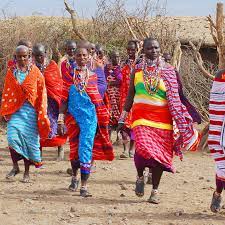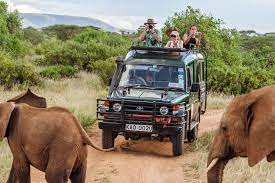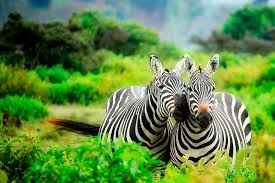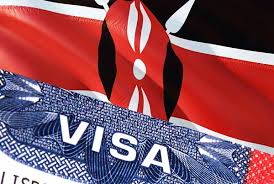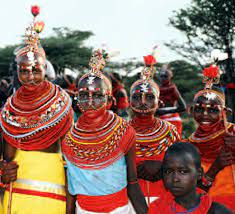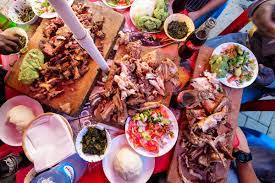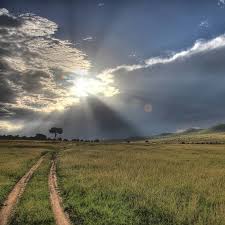Overview
Lake Kivu is among the Great lakes of Africa. It lies on the border between the Democratic Republic of Congo and Rwanda, and is in the Albertine (western) Rift, a part of the Great Rift Valley. Lake Kivu empties into the Ruzizi River, which flows southwards into Lake Tanganyika. A day trip to Lake Kivu is a fantastic way to enjoy a little peace and quiet. Your trip may visit Gisyeni or Kibuye town. In Kibuye, your visit can include a boat cruise to some of the lake’s islands to see the local fruit bat population and enjoy the quiet. Visitors to Gisyeni can pay a visit to the local hot springs, enjoy a cultural visit to a traditional fishing village, or simply having lunch and relax on the shores of the lake.
What to do in Gisenyi (Rubavu)
There is a pleasant public beach on Gisenyi’s lakeshore but it can get quite busy, particularly at weekends. Some hotels have private beaches and water sport options.
Driving north from Gisenyi (Rubavu), the Imbabazi Orphanage founded by American Rosamund Halsey Carr, is a beautiful memorial to a remarkable lady. On returning to Rwanda after the genocide at the age of 82, she transformed her ransacked house into an orphanage for survivors and over 400 orphans have since called this place home. Sitting among colourful gardens, the house looks like an English country cottage, complete with an aging Labrador. Imbabazi is planning to develop a cultural centre in Carr’s memory and runs a variety of projects for local people, continuing to support its former orphans. Your driver/guide will need to contact the orphanage beforehand should you like to visit.
What to do in Kibuye (Karongi)
From Kibuye (Karongi) you can take boat trips on Lake Kivu to nearby islands: Napoleon Island with its colony of fruit bats and Amahoro Island, which became popular locally for the sundowner bar set up on the island seasonally! It’s also possible to visit Kibuye’s genocide memorial church, with brightly coloured stained-glass windows, in a quiet location on a hill above Lake Kivu. Despite a tragic history, it’s a place for peaceful contemplation.
Best Time to Visit
Even though Rwanda sits just two degrees below the equator in the heart of Africa, it is blessed with a temperate climate thanks to its higher altitude. If you intend to vacation in Lake Kivu, which is on the country’s western border with the Democratic Republic of Congo, you can safely choose the dry seasons as the best time to visit. The daytime high temperatures average around 27C (81F) degrees in the warmest months of August through October, while nighttime lows rest at about 15-16C (59-61F) degrees. June and July are the driest months and therefore the best seasonal months for relaxing at Lake Kivu, with maximum and minimum temperatures just a bit cooler than that. Choosing the right time to travel is important, and your holiday consultant at AfricanMecca Safaris will give you helpful guidance based on your travel preferences. Lake Kivu experiences two wet seasons and two dry seasons, much like the climate in the rest of eastern, southern, and central Africa. The dry seasons are from June until August and from mid-December through to mid-February, though you can expect some showers in the latter part of the season. Traveling in the dry months is great for enjoying sunbathing or swimming in the lake. Birders can go exploring to catch sight of many of the 60 avian species that abound here. The long rains in this region occur from March to May, and especially in April. The short rains fall from September to November and into the beginning of December, bringing a burst of new vegetation that can be breathtakingly beautiful. Since the wet seasons are the low tourism months, you might be able to get room discounts in the various accommodations during that time. While it may be called the wet season, those visiting during this time should expect that it will not rain continuously throughout the day; typically, heavy showers are interspersed with bright sunshine.
Lake Kivu sees an influx of local guests during the long dry season. This season coincides with summer vacation in North America and Europe, and families like to spend time touring Rwanda’s parks and reserves on wildlife spotting expeditions—especially partaking in gorilla safaris at Volcanoes National Park. The tranquil waterside locale of Lake Kivu is an ideal place for rest and relaxation post-gorilla adventure. The short dry season, of course, coincides with the winter months up in the northern hemisphere, and spending time in the warmer climate of Rwanda and Eastern Africa is an excellent choice for like-minded vacationers. The latter two weeks of December are also the time of festive holidays, and many locals like to spend them with friends and family in Rwanda. If you hope to experience fun water activities during your vacation at Lake Kivu, it is best to plan your trip during the long dry season. With a lower possibility of rain, you will be able to enjoy swimming, sunbathing, and long walks on the tan, sandy beaches. If you’re lucky, you might catch sight of some of the beautiful birds residing around the lake. There are always fewer insects in the dry seasons than during the rains, so you are less likely to be bothered by annoying bugs, including mosquitoes. The risk of contracting malaria is, of course, lower during the dry season; though, precaution should always be taken.
When to Visit Lake Kivu
Lake Kivu lies just a few hours from Kigali by bus. It makes for a great overnight or weekend trip. The lake would also be a convenient stopover for those traveling to visit Virunga National Park in DR Congo. You could easily make a small detour before traveling on to cross the border at Goma. If you are visiting Rwanda for a gorilla trekking safari in Volcanoes National Park, Lake Kivu would be an excellent place to stop by for a rest either before or after the trip.
Getting There
Ariadne is a renowned Africa expert. She and her husband form a team who write and update many Bradt guides, including the guide to Rwanda.
Kigali International Airport (KGL) will be your entry point into Rwanda. It is about 10km/6mi from the capital, Kigali. Nyungwe Forest NP is in the south of the country 200km/124mi from Kigali, 87km/54mi from Huye and 55km/34mi from Rusizi. The drive takes about four to five hours from Kigali, two to three hours from Huye and about one hour from Rusizi. Usually, Nyungwe Forest is visited as part of a 4×4 tour around the country with a driver-guide. Akagera Aviation offers charter helicopter transfers to anywhere in the country, including Nyungwe For
Activities
Because Rwanda is fairly small, Lake Kivu is easily accessed from anywhere in the country. Most people visiting Lake Kivu will travel there from Kigali. The most convenient, and in my opinion, the most beautiful town to visit is Kibuye. The 84 miles (135 km) trip from Kigali takes about 3 hours by minibus. Kibuye is a small, picturesque town located right on the shore of the lake. The road from Kigali to Kibuye is paved and in good condition. The lake is easily accessible year around. From Kigali, you can also reach the lakefront towns of Gisenyi which is in the Rubavu region of Rwanda. The town is located on the north shore of the lake. Gisenyi is the largest resort town on the lake and is much larger and more heavily populated than Kibuye. Because of this, more options are available in terms of hotels and restaurants.
Lake Kivu is Rwanda’s largest water body and covers half of Rwanda’s western border. With many tourist attractions that are enticing to engage in, there is no better place to conclude a safari than relaxing along the shores of Lake Kivu. The lake has no crocodiles, hippos neither Bilharzia making it suitable for swimming. Some of the main tourist activities carried out around this lake include;
Swimming;
Swimming is a common activity which is carried on this lake since the lake allows the tourists to relax and chill out as they take a swim. There are no hippos, crocodiles no Bilharzia in this lake making it perfect for swimming. This is mainly because the temperatures of the water are favorable for the swimmers.
Relaxation and chilling out
Relaxation along the shores of Lake Kivu is the perfect thing to do especially after having a gorilla trek in the volcanoes national park or a volcano hike as well as chimpanzee trekking. Chilling out along the shores of Lake Kivu makes a memorable end of your safari in Rwanda. Many holiday makers relax as they enjoy the tropical sun, read a book or view the beautiful scenery of the lake. The lake is also surrounded by fishing boats, beautiful breeze of the lake as well as mountains. The lake provides the best scenic views ever while relaxing along its shores.
Water sports along Lake Kivu
Water sports is so common along Lake Kivu since there are many water activities that can be engaged in by the holiday makers. Some of these include; water skiing, wind surfing, wind surfing, paddling and enjoying a motor boat on the lake. Fishing is also a common activity on Lake Kivu.
Hiking and Biking around Lake Kivu
Hiking and biking alongside the shores of Lake Kivu is perfect for many holiday makers. The hikes can be one to half day as well as nature walks. Tourists can be able to venture out the new developed Nile Congo trails, village visits and cultural interactions hence getting an enticing experience. Climbing and biking of hills around is the lake is also a common activity.
Coffee tours around Lake Kivu
Rwanda has many coffee plantations and these can be enjoyed by the tourists one coffee tours by taking a boat cruise on the lake to Nyamirundi Island. You can be able to learn the whole process of coffee making starting from stage one to the last stage. You even get chance to test the last product. This experience is so good for those interested in agro- tourism.
Beach Visits
Many holiday makers have been attracted to the beautiful sandy beaches around Lake Kivu and these encourage relaxation due to the cool breeze and natural waves. The beaches are surrounded by mountains that make it an outstanding sight and a perfect place to relax. Many gorilla trekkers relax along these beaches to cool off.
Uniqueness
Lake Kivu is one of the African Great Lakes. It lies on the border between the Democratic Republic of the Congo and Rwanda, and is in the Albertine Rift, the western branch of the East African Rift. Lake Kivu empties into the Ruzizi River, which flows southwards into Lake Tanganyika. Lake Kivu covers a total surface area of 2730 km2 with a volume of 560 km3 and lies at an elevation of 1463 m above sea level. This lake is a shared resource between Rwanda and the Democratic Republic of Congo whose bed sits upon a rift valley that is slowly being pulled apart, causing volcanic activity in the area, and making it particularly deep: its maximum depth of 485 m is ranked nineteenth in the world. Lake Kivu, unique worldwide, is a fresh water lake rich in dissolved methane and carbon dioxide gases in its deep water with hot spring on the surface in some points. It is a meromictic lake whose water never mixes due to difference in density of different layers and thus preventing outburst of deep dissolved gases. On the other hand, gases from deep recharge and accumulate in the deep layers of the Lake. Therefore, methane gas exploitation helps to reduce the risk of gas and it allows supply of significant amount of energy; to the socio economic benefit the population. Also fisheries and fishing in Lake Kivu have gained substantial economic and nutritional importance for the lakeside human populatio


